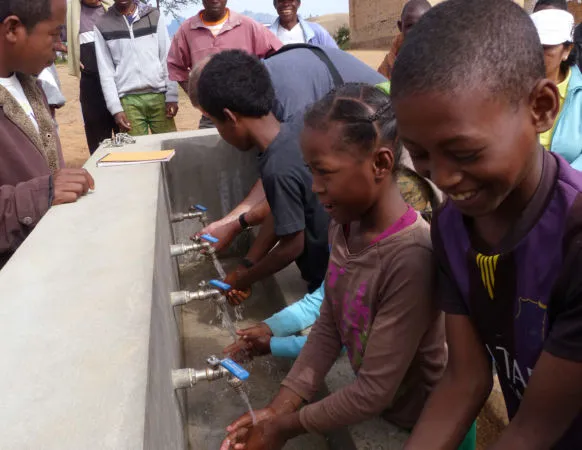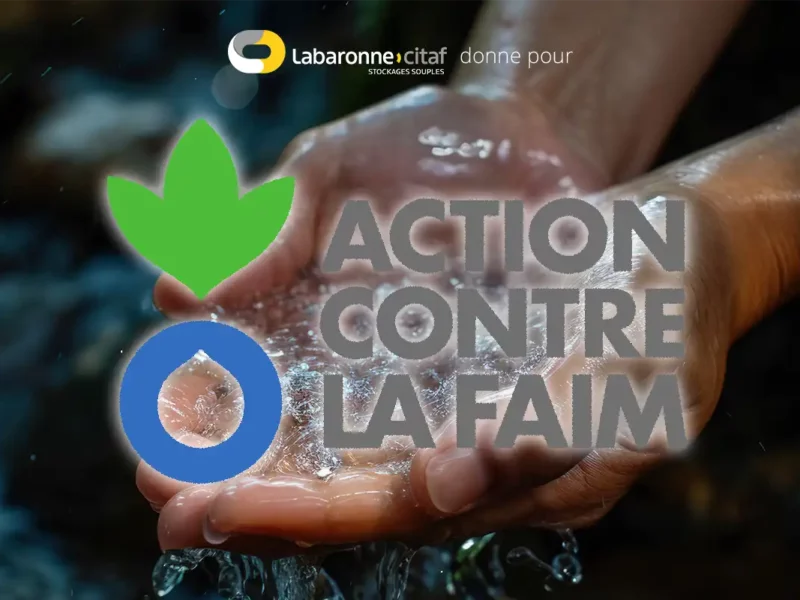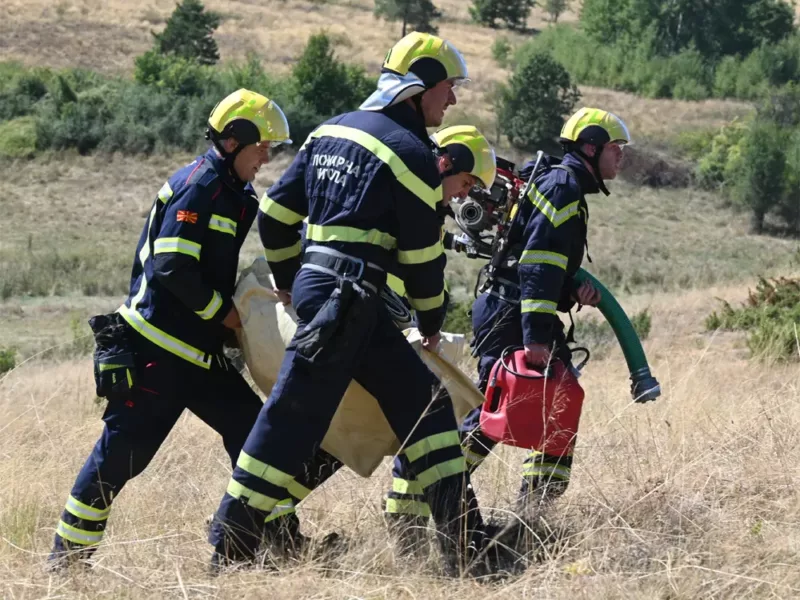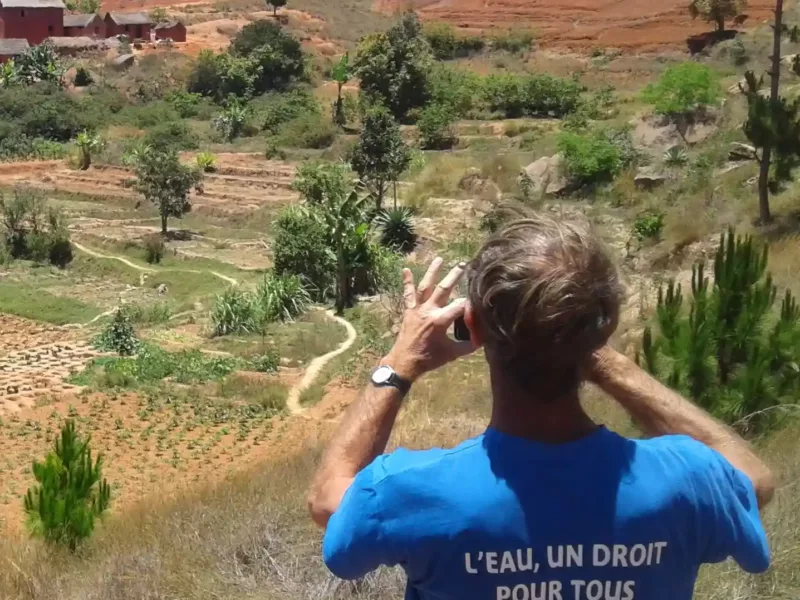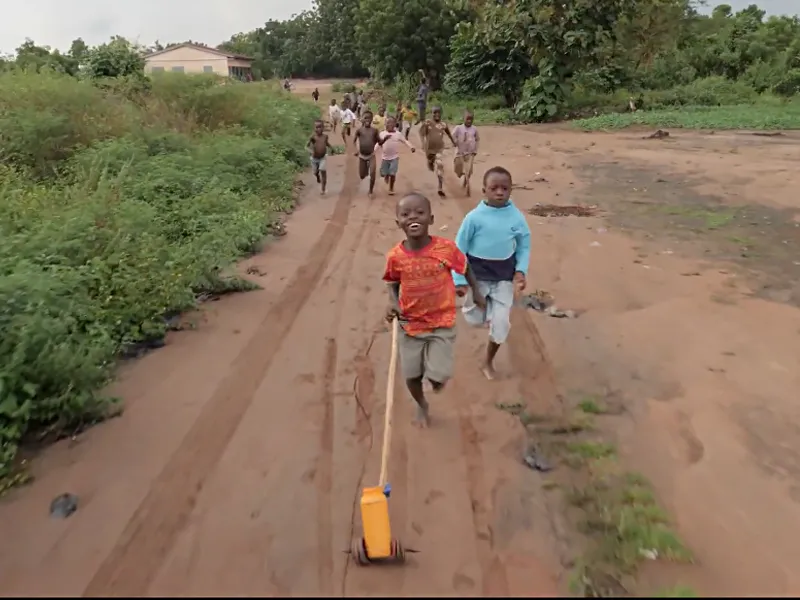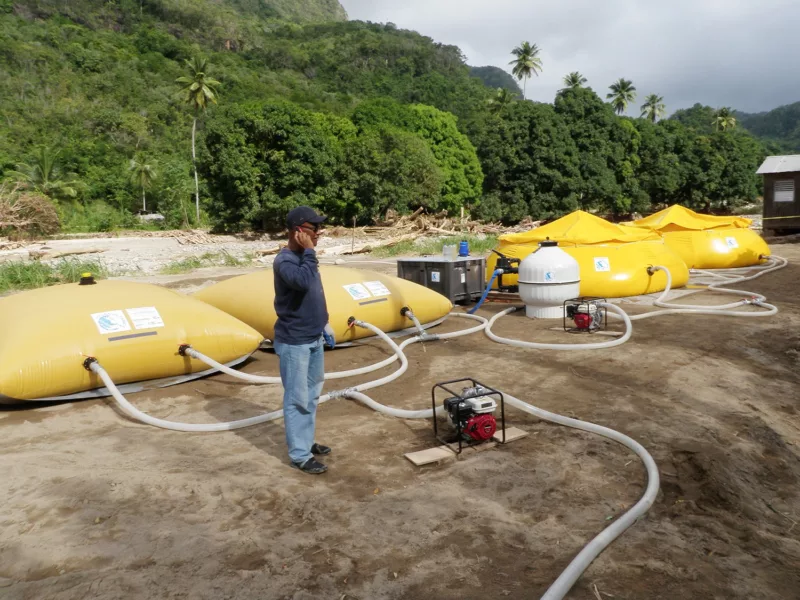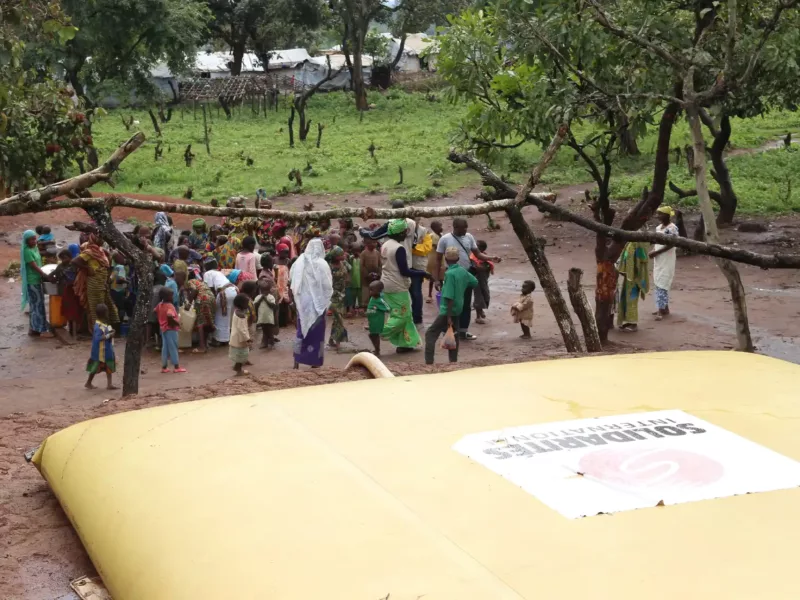WATER AND ELECTRICITY: RENEWABLE AND SHARED ENERGIES
Access to water is often inseparable from access to electricity, as they complement each other and are interconnected, both serving the development of populations and the economy.
Access to drinking water
In these countries, whether for drinking, cooking or daily hygiene, bringing a sufficient quantity of water to a household generally requires several return trips to a collection point, often located several kilometres away on foot. But with the scarcity of water and the pollution of rivers, access to this natural resource is increasingly linked to energy, which is essential when it comes to fetching water from deep underground and installing sanitation systems to ensure quality water all year round.
The installation of a pumping system using solar panels and standpipes in the villages reduces the risk of water-borne diseases, but also alleviates the burden of fetching water, which is often borne by women and children.
Food safety
Irrigating a market garden, thanks to the construction of a water supply network, ensures food safety for the population and allows them to develop a small business through the sale of crops.
Developing food crops and livestock ensures the food security of the villagers. Indeed, an irrigation system built from a borehole allows for year-round cultivation. Electricity allows the use of food processing machines and better feeding of the population, and even the development of local trade. The surplus can be sold on local markets and generate income.
Renewable energy production
Promoting the production of energy from local renewable resources such as solar and hydro power are alternatives to fossil fuels with a very limited impact on the environment.
Renewable energy provides access to efficient and affordable energy while reducing greenhouse gas emissions. In some countries, ESF’s interventions have helped to demonstrate the interest of these technologies and to train the first actors who wanted to engage in this way. More than 95% of their projects are based on the use of renewable energy, and half of them include water access facilities, thanks in particular to the flexible solutions developed by Labaronne-Citaf.


